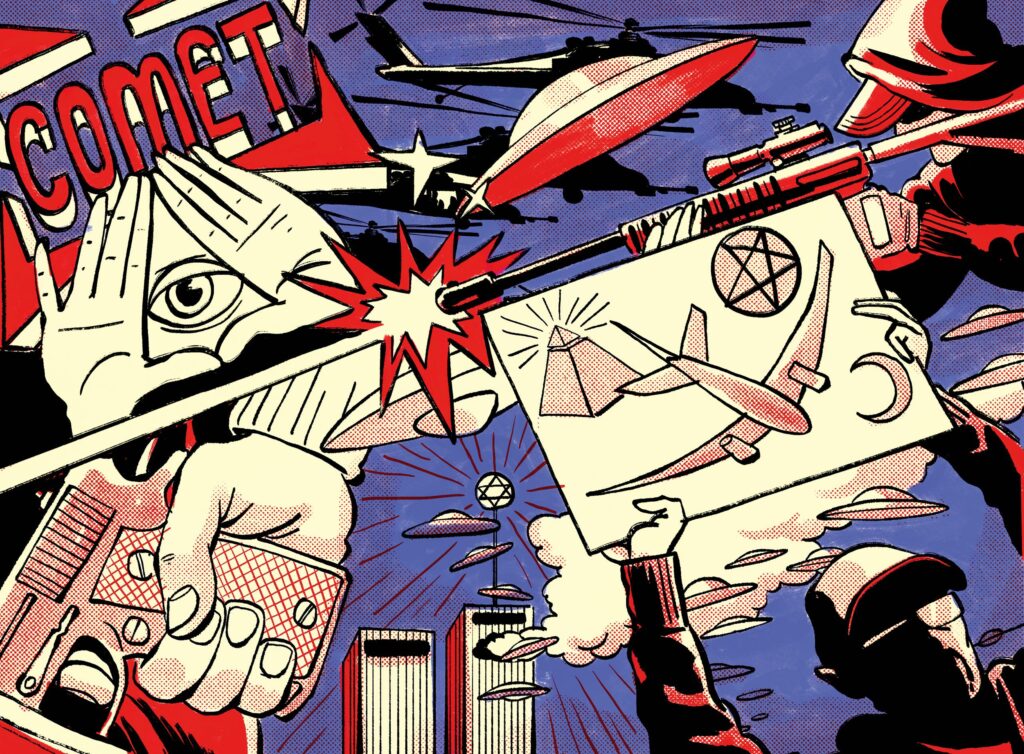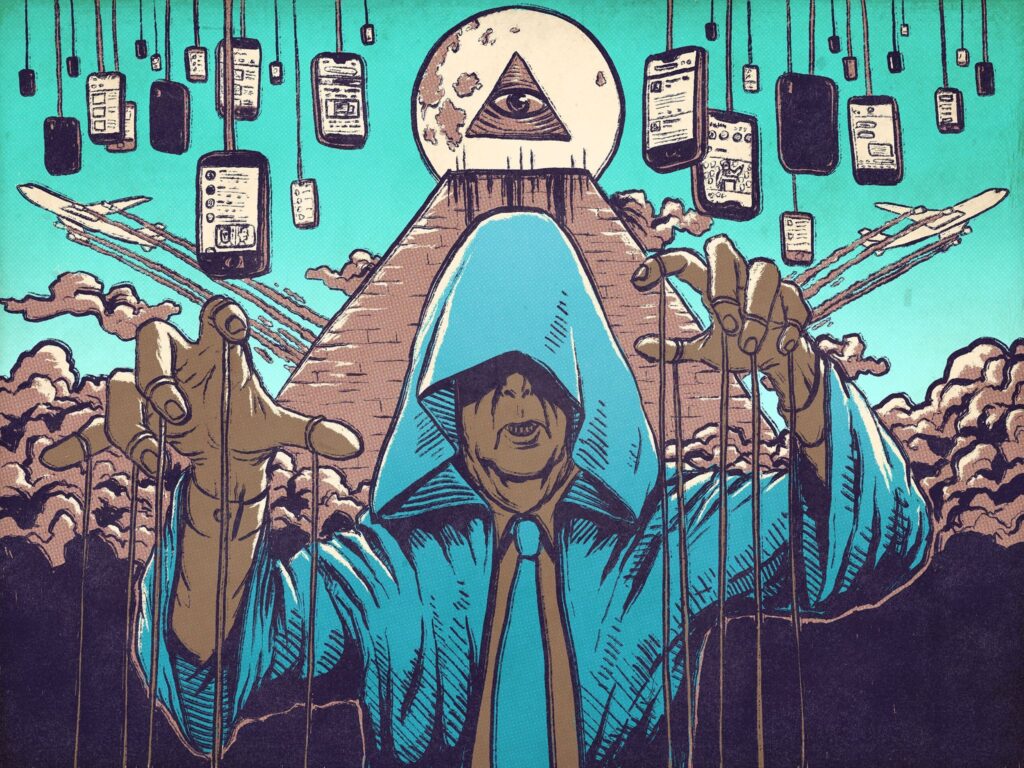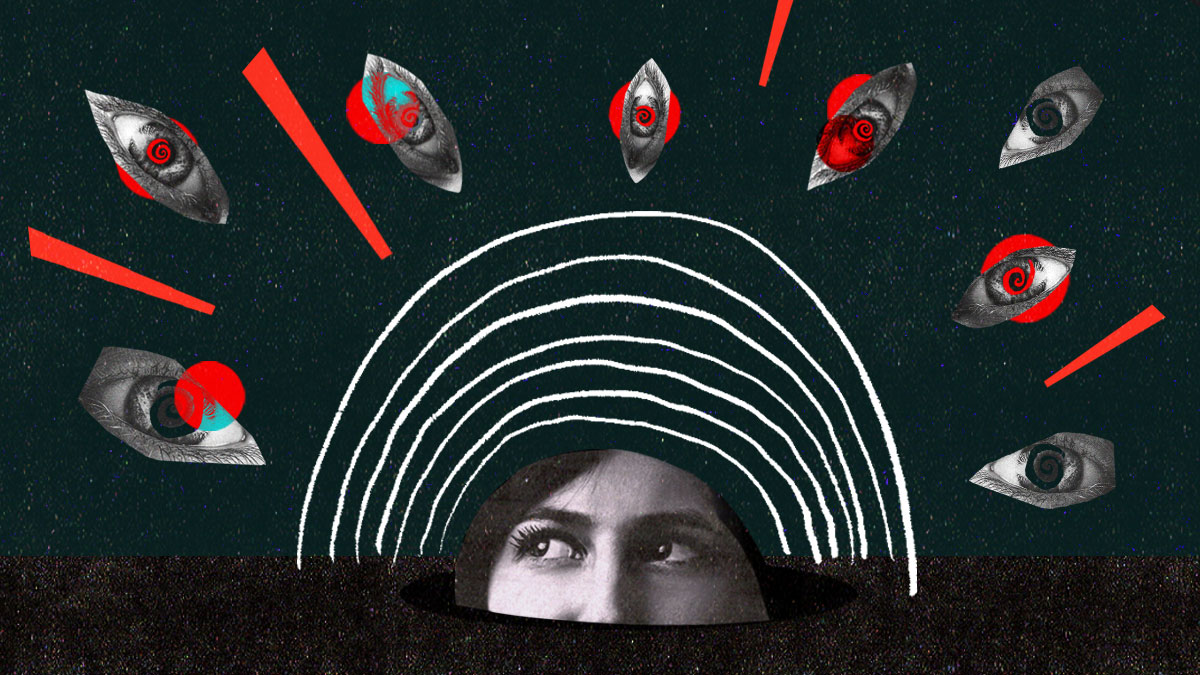By Katerina Dimarogkona,
Believing in conspiracy theories is a curious phenomenon. We have evidence of them from, as early as, the age of hunter-gatherers. They traditionally concern a minority, who is maybe uneducated and who sees patterns everywhere of those in power, plotting malevolent schemes against people. Yet, in recent years, conspiracy is not about a few people on the fringe of society. Large groups believe that the Trump election was rigged, that vaccines cause autism, and, in a variety of highly refutable theories about COVID-19, along the lines of Bill Gates is putting mind control microchips in the vaccine (not-too-discredit COVID-19 skepticism). It has happened to most of us that people we hold in high esteem, suddenly express these views so out-of-this-world to us, we lose respect for them. It is not clear, however, that we can keep attributing this rise in conspiracy theories just too delusional thinking, for the influence it has, is too great to ignore.
The act of believing in such theories is characterized by a few universal characteristics, as experts in the field report. First, people who accept conspiracy theories as truth have a similar mentality. This explains why a person who believes in one theory is likely to believe in others. It is not so much about the contents of the theory, but about the mentality of the believer, allowing us to speak of a conspiracy mindset. Second, people have even more such convictions in times of societal change, crisis, or war, when they feel powerless and uncertain. In the same way, systems that oppress groups foster these ways of suspicious thinking, which explains why minorities are generally more prone to believing such schemes against them.
There are other predictors for whether someone will believe in conspiracies, such as their education level, anxiety traits in their personality, and others, which we will ignore for the purpose of this article. Generally, though, feelings of lack of control enhance the belief in organizational conspiracy theories. In such cases, people overrate the power of their enemies and believe there are intentional causes to their problems, when in reality and quite often, there are none. They search for an external oppressor.

The great instability and crisis that helps the spread of conspiracy in our case is the lack of trust that we have in our institutions, politicians, and now maybe scientists. And this problem of trust is important because it raises the question of whether people feel like the system cares about them or if power only serves the needs of the powerful. According to UN findings, in the United States, the civilians’ trust in the national government has declined from 73%, in 1958, to 24%, in 2021. Western Europe has seen a similar steady decline in public trust since the 1970s, to a smaller degree, however. Of course, the less economically affluent a country is, the less trust it has in its institutions, and the same goes for countries with high corruption, where people rightly sense that the state is not fulfilling its fundamental role of providing for its citizens.
It was always said that politicians are corrupt, but the amount of mistrust towards the system has risen dramatically. They are accused of serving corporate interests by people across the ideological spectrum. People feel unable to explain who decides and how. Worst of all, they do not feel like a part of the answer, as all voter turnout polls systematically show. It is often jokingly said that, in order to find the year with the lowest voter turnout in history, we only have to look at when the most recent election took place. Such climate births doubt. And when people come to question whether the results of an election or research findings are truthful or not, or whether they are a result of power games, conspiracy theories find room to grow in the midst of confusion.
This brings me to the point of how hard it is for the average person to analyze the news or research findings correctly. Amidst the chaos of news on the Internet, one has to fact-check every source and see if studies are credible themselves, which is not an option for most. They just do not have the analytical tools to make sense of this incredibly complex information. Information that is hard to understand, even for specialists. People get the general sense that something is amiss, an uneasy feeling that leaves them preferring to “do their own research”.

Now, we cannot talk about conspiracy and misinformation without mentioning the Internet. But the evidence for a rise in the amount of conspiracy after the advent of the Internet is actually scarce. While conspiracy theories are heard by more people, it seems that few believe them who would not have believed them anyway. What seems more probable is that the Internet helps people find community, and so it helps conspiracists find each other and organize better. Plus, conflicting information and misinformation lower people’s trust in systemic journalists.
The belief in wild conspiracies, which have become so prevalent, might be unfounded and based on overconfident Googling. But the issue remains that, behind every conspiracy, there is a feeling of mistrust of the system, which is credible and speaks to deep institutional problems we suffer from. Even among supposed “non-conspiracy theorists” in conversation, arguments are put forth about how, for example, the pandemic is intentionally used as a way to kill small businesses and enrich billionaires, which is an arguable conspiracy. Such normalization of seeing plots, that cannot be directly supported by scientific documents, is unprecedented. In such examples of more normal “conspiracies”, we can see how the line can be blurry between conspiracy and perceived “truth” that is, as of yet, unproven.
This dismissal of conspiracy theorists, as only behaving pathologically, is simplistic and is costing us a better view of the conflicting views our society holds. Contrarians are popping up everywhere, rejecting the validity of statements precisely, because they are said by the mainstream media, and assuming ill motive by those in power. At the same time, however, we cannot believe we live in a developed democratic society, where science and justice prevail and, simultaneously, the government is spying on people, trying to poison them, the news is nothing but a propaganda instrument, etc. There is this cultural clash that is happening, between the narrative of a fair society that works effectively and another one of deep mistrust of the powerful, where malice is found behind every corner. And these narratives are often represented in the beliefs of a single person. We live in confusing times.
References
- Joseph E. Uscinski, Darin DeWitt, Matthew D. Atkinson, A Web of Conspiracy? Internet and Conspiracy Theory, in Handbook of Conspiracy Theory and Contemporary Religion, vol. 18, published by Brill, 2018, Ch. 5, pg. 106-130
- Trust in public institutions: Trends and implications for economic security, un.org, Available here
- Jan-Willem van Prooijen, Karen M. Douglas, Belief in conspiracy theories: Basic principles of an emerging research domain, ncbi.nlm.nih.gov, Available here




